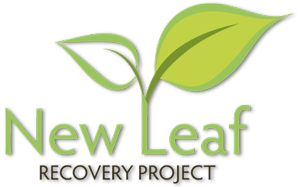Drug Addiction and Recovery Relapse
Addiction and Relapse
Recently Anthony McPartlin has hit the headlines after having a head on collision on a Sunday afternoon. In the other car was a family including a three 3 year old child. Ant was breathalysed at the scene and was found to be over the drink drive limit. He has since been charged with drink driving.
Last year Ant was in rehab and revealed that he had almost died from a secret two year addiction to super-strong painkillers after a knee operation. He was taking prescription and non-prescription drugs and would take them with alcohol. He checked into rehab and was there for 2 months.
Sadly, with this latest incident, it looks as though Ant had a relapse and has now gone back into rehab.
For most people dealing with addiction recovery is anything but straightforward. There is a long road ahead with ups and downs, good days and bad days and there may be days when you feel the only thing that will help you is by returning back to the addicted substance.
Every recovering addict’s journey is different. An alcoholic for example may be able to have one drink and then get back into their recovery programme without a problem. For most people, however, taking a sip of that one drink is the start of a total relapse. This can then have a negative impact on that person’s life, relationships with family members, finances and their overall health. For some people this will undo all the good work that has been done at rehabilitation and it will be like starting all over again on the road to recovery. Many addicts will have to go through recovery treatments many times in order to achieve sobriety.
Having a relapse does not necessarily mean that you have failed. It is common and very frustrating but for some people a relapse can be part of their recovery. The unfortunate reality is many individuals who receive substance abuse treatment will relapse within one year.
Recovery from an addition is a lifelong process. If you have recently had a relapse it is important not to think to yourself that this is it, you have failed. This is not true! Instead start to focus on what the triggers were that made you slip back and make a conscious effort to try and overcome these urges and cravings and understand how to control your triggers. Your desire to move past your relapse and move forward with your journey should help with your goals.
There are different types of emotional triggers than can lead to craving your substance again.
- Anxiety
- Depression
- Stress
- Fear
- Frustration
There are also environmental triggers such as attending social gatherings and parties where you may feel you need something to help get you in the mood. Relationship breakdowns are also a common reason for relapse.
Here are a few tips to help you cope with these triggers:
- Speak to your friends and family. They are there to support you and will want to help you overcome your addition.
- Distract yourself by filling your time with something you enjoy. Do some exercise or something physical. Exercise is well known for improving your emotional well being and will help to reduce the feelings that you may be having.
- Remind yourself again of the reasons you want to beat your addiction. Remember the negative effect that this addiction has had on you and if it is worth facing this again.
- Get Help! It is vital that you don’t suffer in silence no matter how many feelings of guilt or shame you may have. Hiding your relapse from friends, family and others who care about you will only make things worse in the long run. Taking whatever steps are necessary in order for you to get back on the road to recovery, including a stay in residential treatment, is key.
If you have been affected by any of the issues raised in this article, contact New Leaf Recovery today for a confidential discussion about your options.

